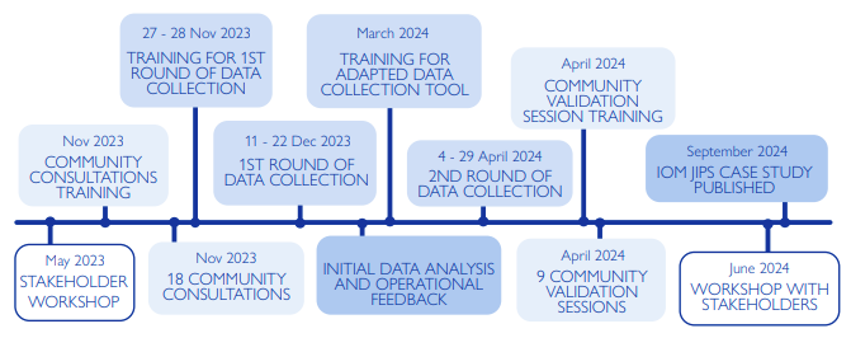Burundi is marked by a complex and varied displacement context. Since 1993, numerous waves of internal and cross-border displacement have occurred due to political crises, conflicts and violence. The displacement situation is further compounded by climate-related factors: as of May 2023, the International Organization for Migration (IOM) approximates that Burundi has over 76,000 internally displaced individuals, with more than 80% affected by these environmental factors. Notably, the socio-economic environment is challenging, with high poverty rates and significant disparities between urban and rural areas, making it imperative for sustainable solutions to consider these factors within the developing Nexus approach in Burundi.
JIPS first engaged in Burundi in 2011, providing technical support for a government-led profiling exercise. In January 2019, JIPS was again approached for technical assistance, this time for a country-wide profiling exercise led by the Protection Cluster (UNHCR and DRC). Unfortunately, the exercise faced interruptions due to the May 2020 elections and the global COVID-19 pandemic. Although discussions resumed in April 2021, regrettably, the exercise was put on hold. In 2023, JIPS and IOM joined forces on a project utilizing Collective Intelligence approaches to enhance data accuracy and empower communities in shaping climate-induced displacement responses based on their knowledge and priorities.
